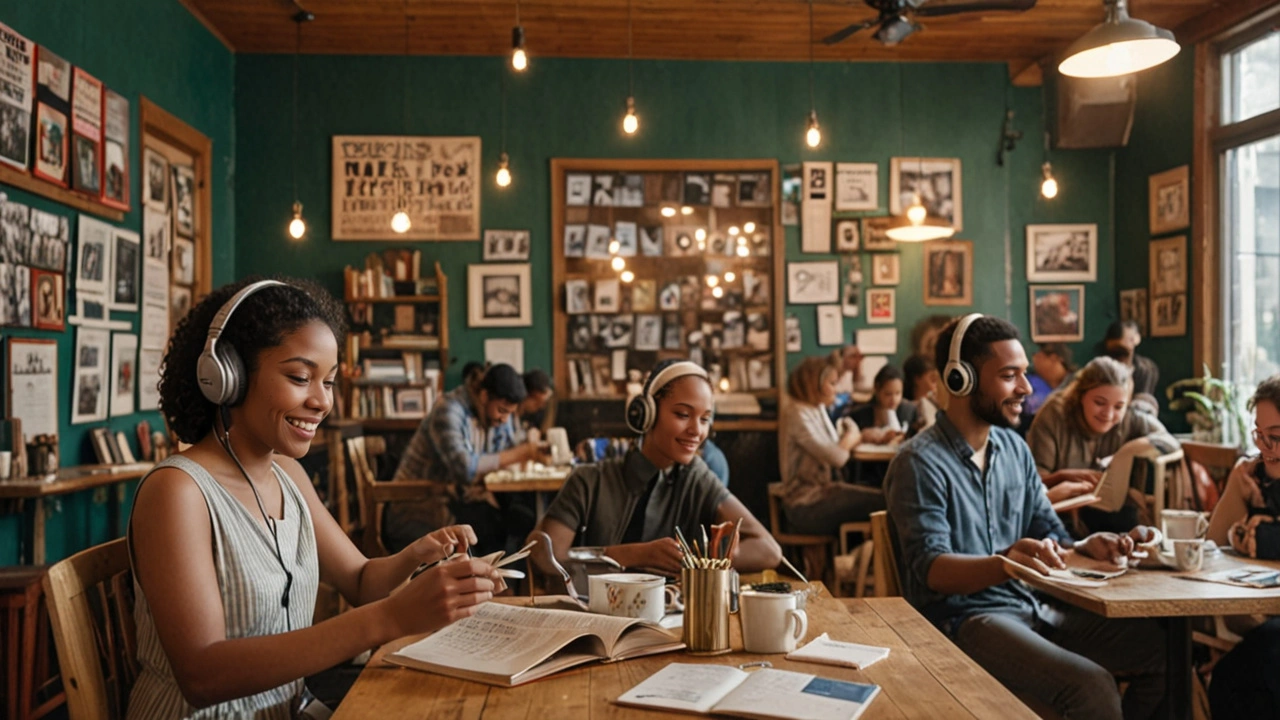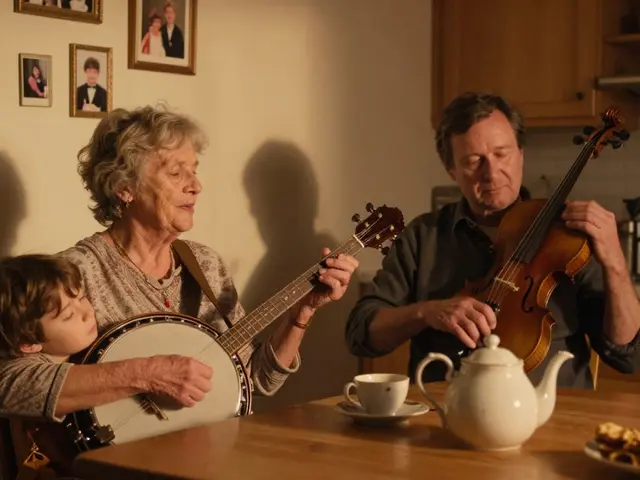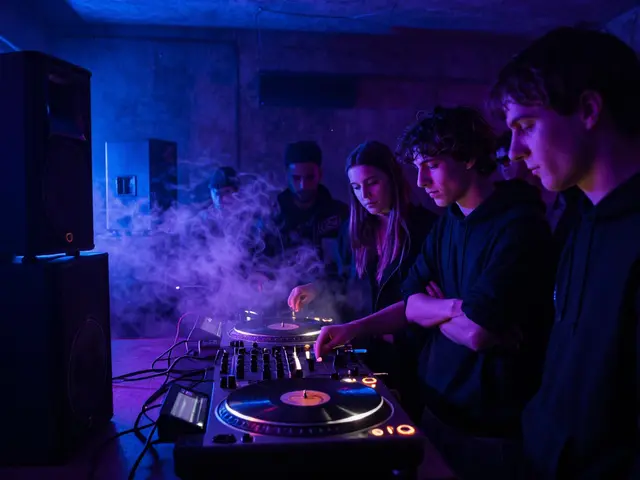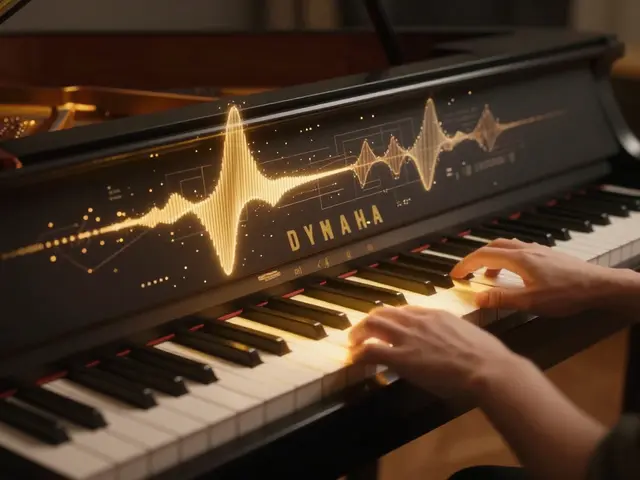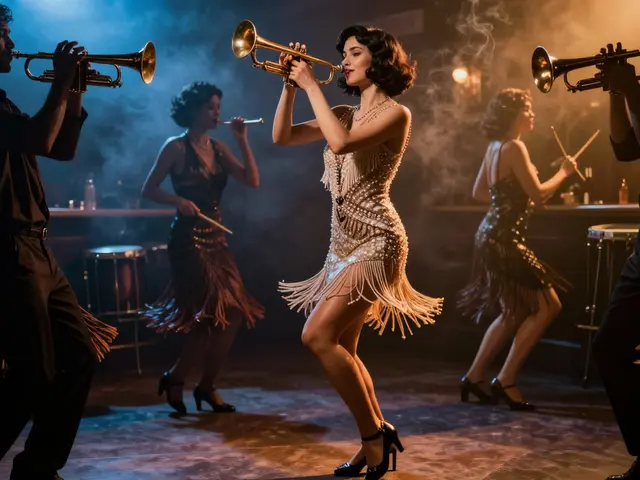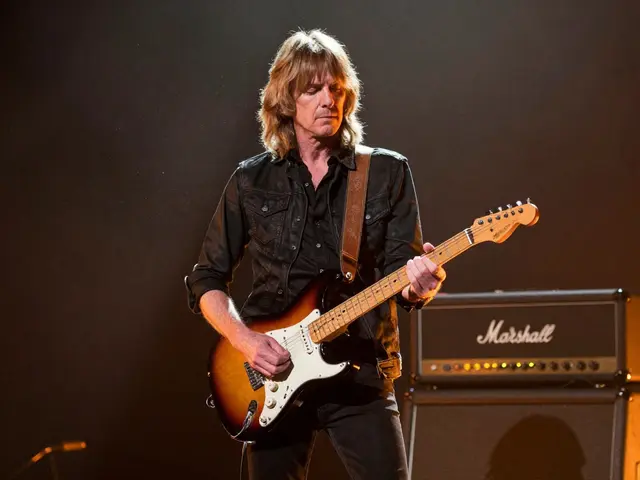Music isn’t just background noise. It's a crucial part of our lives, influencing our emotions, behaviors, and even our identities.
Think about the last time a song made you feel something—joy, sorrow, excitement. These feelings don't just appear out of nowhere. They are often deeply tied to the unique qualities of the genre of music you are listening to. Different genres use distinct rhythms, instruments, and lyrics to evoke various emotions and reactions.
But the impact of music goes far beyond our personal feelings. Music genres can shape cultural identities and bring people together, acting as a social glue that binds communities. From jazz clubs to punk rock concerts, gatherings centered around a music genre can create a sense of belonging and shared experience.
And there's a world of music out there waiting to be explored. Dipping your toes into different genres can be a thrilling adventure, opening up new emotional landscapes and cultural insights. So next time you hit play, take a moment to think about the genre and how it fits into the tapestry of your life.
- The Emotional Impact of Music Genres
- Cultural Significance and Identity
- Social Connections Through Music
- Tips for Exploring New Genres
The Emotional Impact of Music Genres
When we talk about music, it doesn't take long to realize how deeply it is tied to our emotions. A song can lift us up or bring tears to our eyes in just a few notes. The genre of the music plays a key role in this emotional journey. Different genres use unique elements to provoke specific feelings and memories. Pop music, for example, often features catchy melodies and upbeat tempos designed to make listeners happy and energized. On the other hand, classical music can calm us down, transporting us to a reflective and peaceful state with its complex harmonies and soothing tones.
If you've ever felt a sudden jolt of energy while listening to rock music, you're not alone. The powerful guitar riffs and percussion in rock are known to increase adrenaline, making us feel more alive and vibrant. According to a study by the University of Missouri, upbeat music can significantly improve our mood. In a similar way, genres like blues and jazz can evoke a sense of longing or sadness, often using slower tempos and soulful lyrics to touch the softer sides of our hearts.
Music genres have evolved to serve as fictional worlds we can escape to, tapping into different facets of our emotional spectrum. This makes them incredibly versatile tools for emotional regulation. Whether dealing with stress, sadness, or even needing an energy boost, the right music genre can help us navigate through these emotional states. Musical therapy is an established field that takes advantage of this, using different genres to assist patients in managing their emotions and mental health. Research conducted by McGill University found that music releases dopamine in the brain, a neurotransmitter that contributes to feelings of pleasure and satisfaction.
"Music can change the world because it can change people." – Bono
Genres such as electronic dance music (EDM) are crafted to ignite excitement and euphoria. Their pulsating beats and repetitive rhythms create a sense of climax, often associated with big drops and energetic melodies. This genre, popular at festivals and clubs, is designed to create a collective experience that amplifies the emotional high felt by the audience. It reminds us that our emotional responses to music are not just solitary experiences, but shared human expressions.
The emotional impact of music genres is also culturally significant. Traditional music from various cultures carries with it the emotional and historical stories of the people. Take, for instance, the distinctive SAD tones in Fado music from Portugal, known to evoke a deep sense of melancholy and nostalgia, or the joyous and rhythmic beats of African tribal music that inspire collective dance and celebration. These genres serve as emotional time capsules, preserving the feelings, struggles, and joys of generations past and present.
Finally, let's not forget the therapeutic aspect of music. Listening to the right genre can become a form of self-care, helping us manage stress and find comfort. Lofi hip-hop, with its relaxed beats and mellow tunes, has gained popularity as a background genre for studying or unwinding. The repetitive and often simplistic melodies create a calming atmosphere that helps to focus the mind and relax the body.
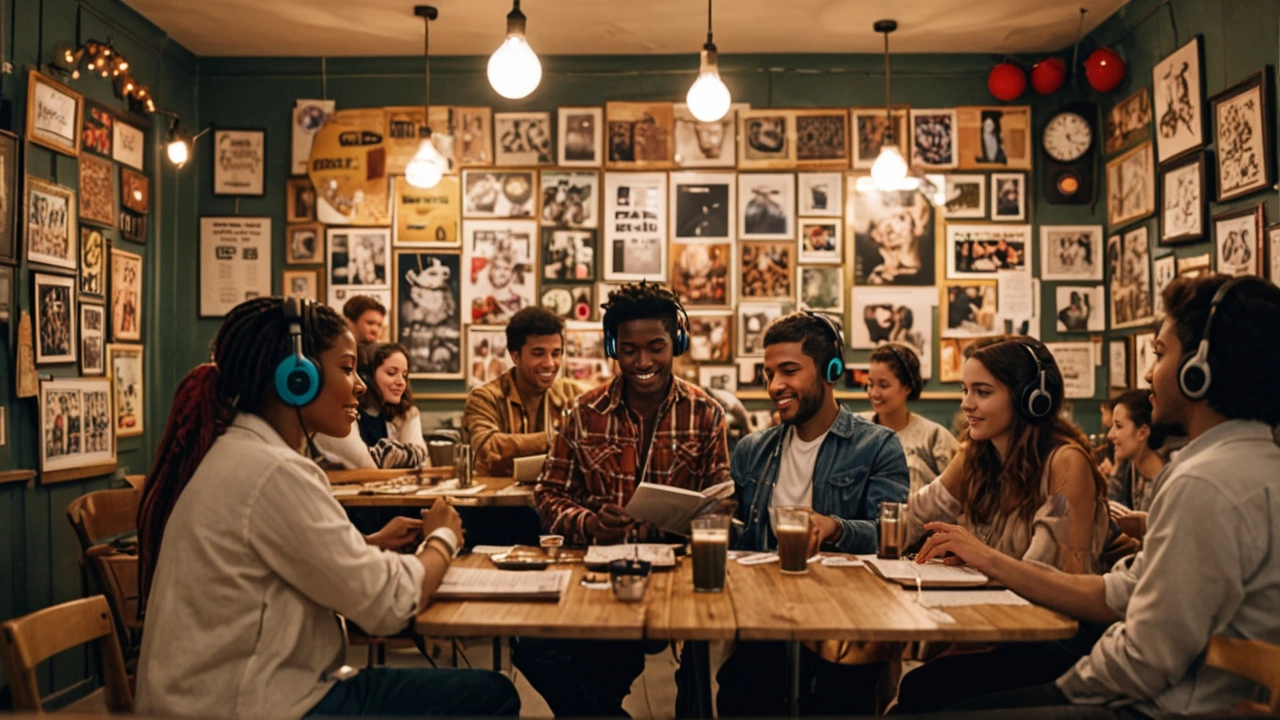
Cultural Significance and Identity
Music genres play a huge role in shaping cultural identities and reflecting the social landscapes of their times. From the rebellious spirit of punk rock to the soulful depth of blues, each genre comes with its own set of cultural markers and historical contexts. These genres don’t just create sounds; they tell stories and offer a sense of belonging to their listeners. Think about hip-hop, which emerged in the 1970s in the Bronx, New York. It wasn't just a form of music but a form of expression for marginalized communities, capturing their struggles, hopes, and victories. Over time, hip-hop has grown into a global phenomenon, influencing fashion, language, and even politics.
One of the most fascinating things about music genres is the way they travel and evolve. Jazz, for instance, originated in African American communities at the turn of the 20th century. However, its appeal quickly spread worldwide, fusing with local sounds and traditions to create sub-genres like Afro-Cuban jazz and Latin jazz. This cross-pollination of sounds not only promotes cultural exchange but also highlights how music can break down barriers and foster a global sense of unity.
Moreover, genres can serve as time capsules, preserving the essence of a particular era. The 1960s, marked by social upheaval and the counterculture movement, saw the rise of rock and roll. Musicians like Bob Dylan and The Beatles became more than just artists; they were the voices of a generation, encapsulating the spirit of protest and change. This intersection of music and history shows how genres can become intertwined with cultural identity, shaping the way people remember and relate to their past.
Another layer to consider is how music genres influence individual identity. Fans often adopt the fashion, attitudes, and values associated with their favorite genres. For instance, the grunge movement in the early 1990s wasn’t just about the music of bands like Nirvana and Pearl Jam, but also about a distinct style characterized by flannel shirts and a laid-back, anti-establishment attitude. People who connected with grunge music weren’t just listeners; they were part of a subculture that provided a sense of community and shared identity.
Even today, genres continue to play a pivotal role in defining cultural identities. K-pop, with its meticulously crafted idols and catchy tunes, has taken the world by storm. It's not just a genre; it's a cultural phenomenon that has generated a massive, dedicated following. The K-pop fandom showcases how genres can cultivate dedicated communities that transcend geographical boundaries and language barriers. These fans contribute to a vibrant subculture, complete with its own rituals, slang, and social norms.
"Music is a world within itself, with a language we all understand." - Stevie Wonder
Overall, the cultural significance of music genres lies in their ability to tell stories, bring people together, and shape both collective and individual identities. Whether it's through the historical impact of a genre, the evolution and fusion of sounds, or the subcultures that emerge around them, music genres are much more than categories of sound—they are vital components of our social fabric.
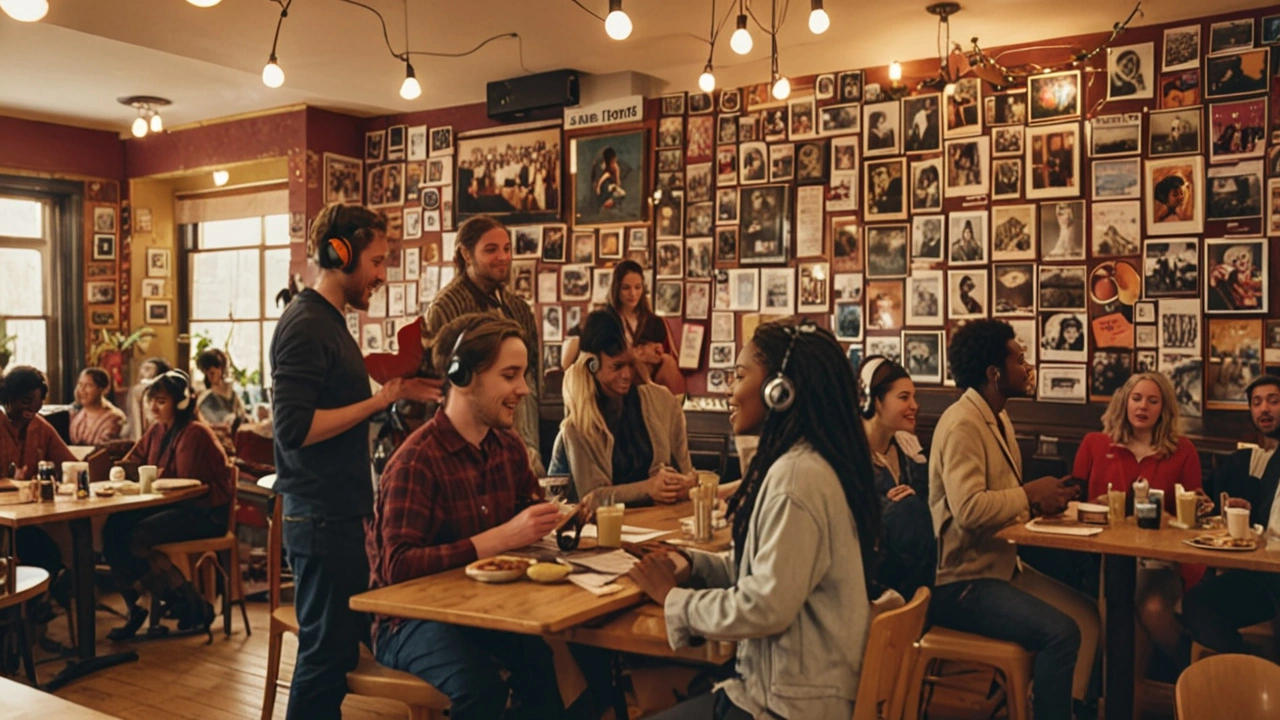
Social Connections Through Music
Music has a unique power to bring people together. Think of the last time you attended a concert or a music festival. The sense of camaraderie, the shared excitement, the collective experience of enjoying live music—these moments are when social bonds are formed and strengthened. It’s not just about the notes and lyrics; it's about the shared emotions that come with them.
Historical evidence shows that music has been a medium for social connection for thousands of years. Ancient tribes used rhythmic drumming and chanting as part of community rituals, celebrations, and even in healing practices. These communal music experiences created a sense of unity and collective identity among tribe members. This tradition of using music as a social glue continues today in many forms, from local jam sessions to global music events like the Olympics opening ceremonies.
Modern technology has amplified music's ability to connect people. Streaming services, social media platforms, and music-sharing apps enable us to discover, share, and discuss music with friends and strangers from all corners of the globe. An interesting example is Spotify’s collaborative playlists feature, where multiple users can add tracks, creating a shared music experience even when they are miles apart. The impact of music on social connection is not just anecdotal. Researchers have found that music can synchronize listeners' brainwaves, promoting a sense of unity and shared purpose. Studies from the University of Oxford have highlighted how group singing can increase pain tolerance by releasing endorphins, forging stronger emotional connections between participants.
Specific genres of music often create their own unique communities. For example, the punk rock scene is known for its tight-knit community of fans and musicians who share a common ethos of rebellion and DIY culture. Similarly, the EDM (Electronic Dance Music) community is celebrated for its inclusive and diverse gatherings, where people of all backgrounds come together to experience the euphoria of dance music. These genre-specific subcultures not only foster connections among their members but also add a layer of richness to our broader social fabric.
“Music can change the world because it can change people.” - Bono
Another social dimension of music is its role in various life events and rituals. From weddings to funerals, music provides the soundtrack to many of life's pivotal moments, embedding these experiences within our memories. The songs we associate with these events often become deeply personal, shared references that connect us to others who have experienced the same moments. This power of shared musical memories can be deeply bonding, offering comfort and a sense of continuity.
For those looking to forge new social connections through music, there are numerous ways to get started. Joining a local choir, band, or dance group can be an excellent way to meet like-minded individuals. Attending open mic nights or music workshops can also offer opportunities to bond with others over shared interests. For the more introverted, participating in online music forums and social media groups dedicated to specific genres or artists can provide a sense of community and shared passion.
In our increasingly digital world, music remains a powerful tool for human connection. It transcends language barriers, bridges cultural divides, and creates shared experiences that enrich our social lives. So the next time you find yourself lost in a melody, remember that you are not alone—someone, somewhere, is sharing that moment with you.
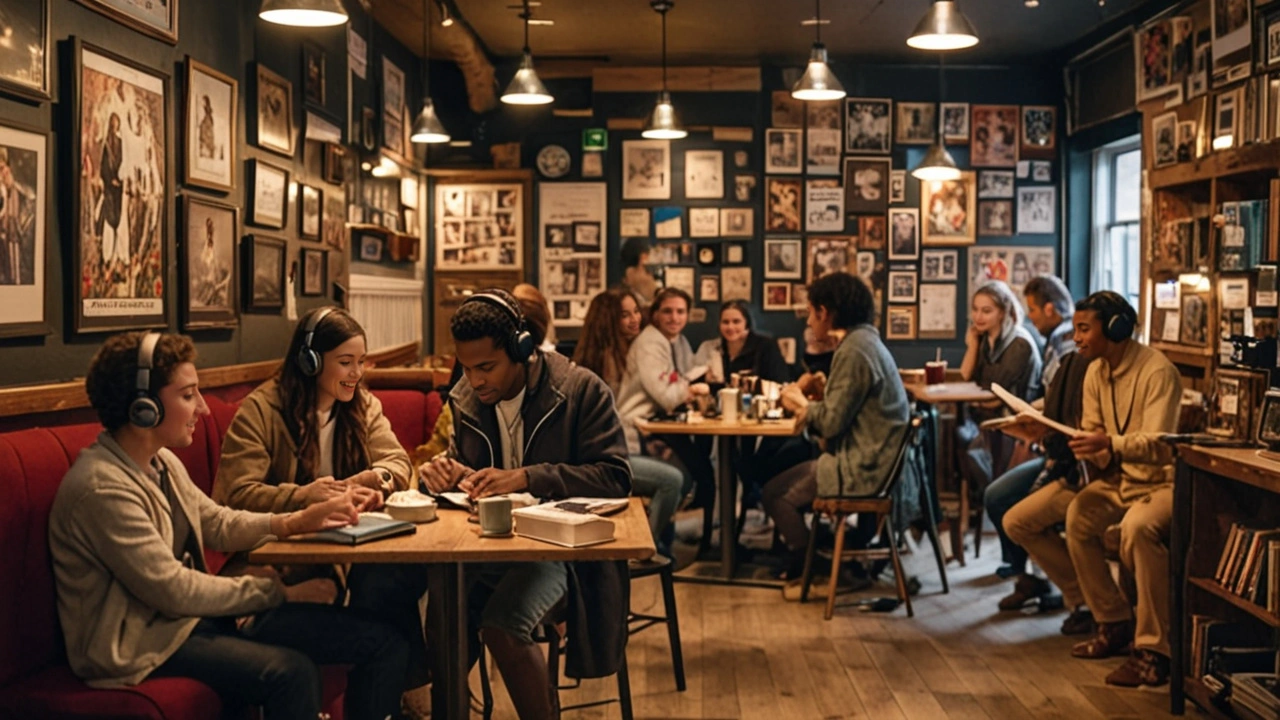
Tips for Exploring New Genres
So you want to explore new music genres, but you don't know where to start? Venturing into unfamiliar musical territories can be both exciting and overwhelming. This guide aims to make your journey smoother and more enjoyable.
One of the first things you can do is leverage streaming services. With platforms like Spotify, Apple Music, and YouTube, discovering new genres is easier than ever. Try exploring curated playlists or “radio” features based on songs or artists you already enjoy. These tools often serve as a gateway to uncovering new genres by introducing you to similar yet distinct musical styles.
Another useful tip is to keenly listen to recommendations from friends and family. Word of mouth remains a powerful way to discover new music. You might be surprised by what others are listening to, and their enthusiasm could be contagious. Plus, this approach often provides you with a real, emotional connection to the new genre as it comes with personal anecdotes and contexts.
If you’re a history buff, delve into the background of various music genres. Understanding the cultural and historical context behind a genre can make the listening experience much richer. For instance, knowing how blues music influenced rock and roll can give you a deeper appreciation for both styles. Consider picking up a book or watching documentaries on musical evolution.
“The beautiful thing about music is that it transcends borders, language, and time,” says renowned music historian, Rick Beyer. “Artists often draw inspiration from elements outside their primary genre, creating new and exciting sounds that invite listeners to broaden their musical horizons.”Joining online communities and forums dedicated to music discovery can also be highly beneficial. Websites like Reddit, Last.fm, and specialized Facebook groups offer spaces where enthusiasts share recommendations and discuss their favorite tunes. These platforms provide a goldmine of information and can direct you to lesser-known artists and tracks that you might not encounter otherwise.
Don't underestimate the power of live music. Attend concerts, festivals, or local music nights featuring genres you’re curious about. Experiencing music live is unparalleled; it gives you a raw, unfiltered taste of the genre's core essence. Being in a crowd that loves the music can also amplify your enjoyment and understanding of it.
Lastly, keep an open mind and trust your gut. It's easy to dismiss a genre after a few tracks you don’t like, but remember that every genre has its hidden gems. Give yourself time to adjust to new sounds, and don’t be afraid to experiment. The more you listen, the more your musical palate will expand.
Exploring new music genres is not just about expanding your playlist. It's a way to embrace different cultures, histories, and emotions. With these tips, you're well on your way to becoming a more diverse and informed music aficionado. Happy listening!

